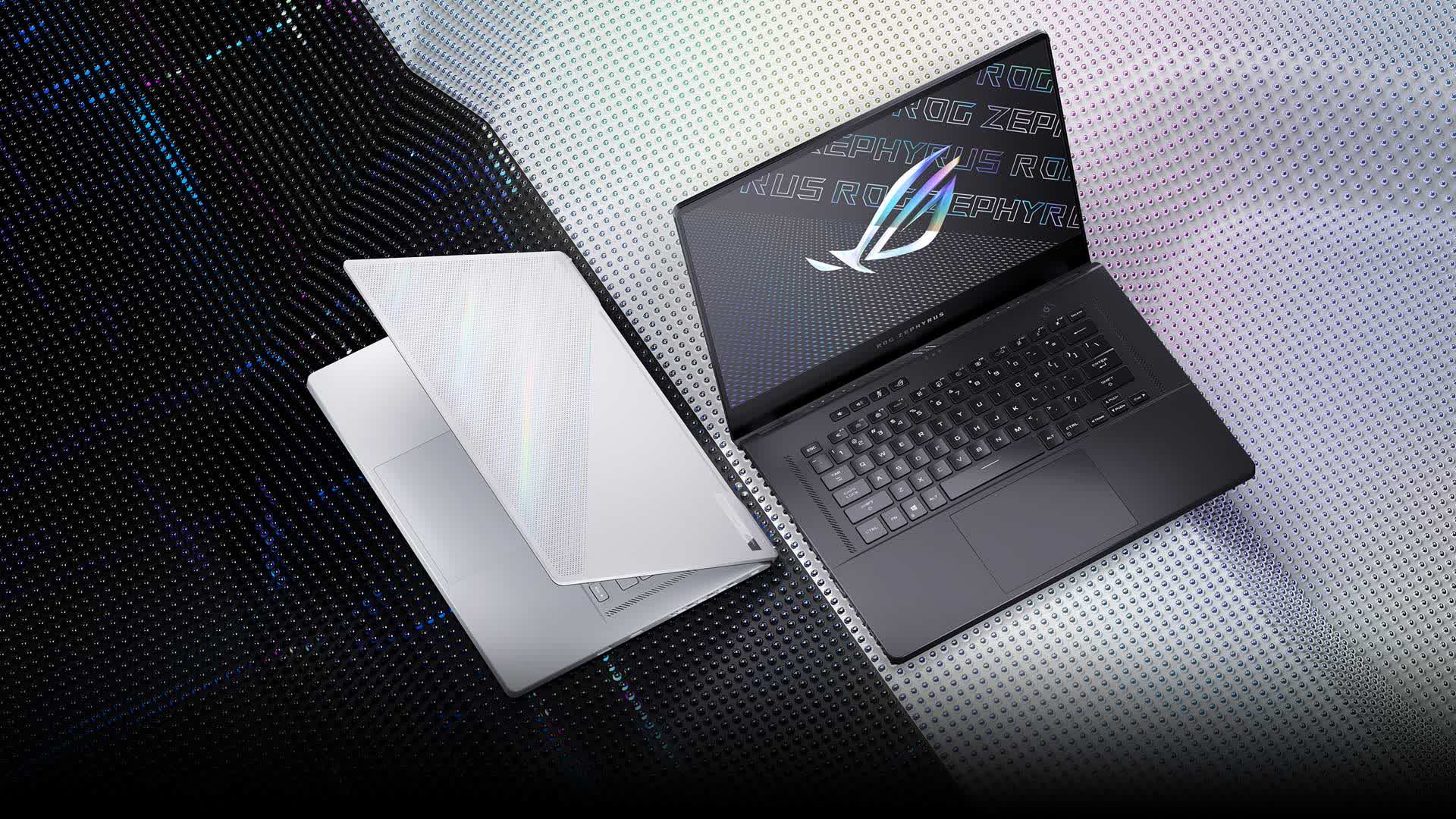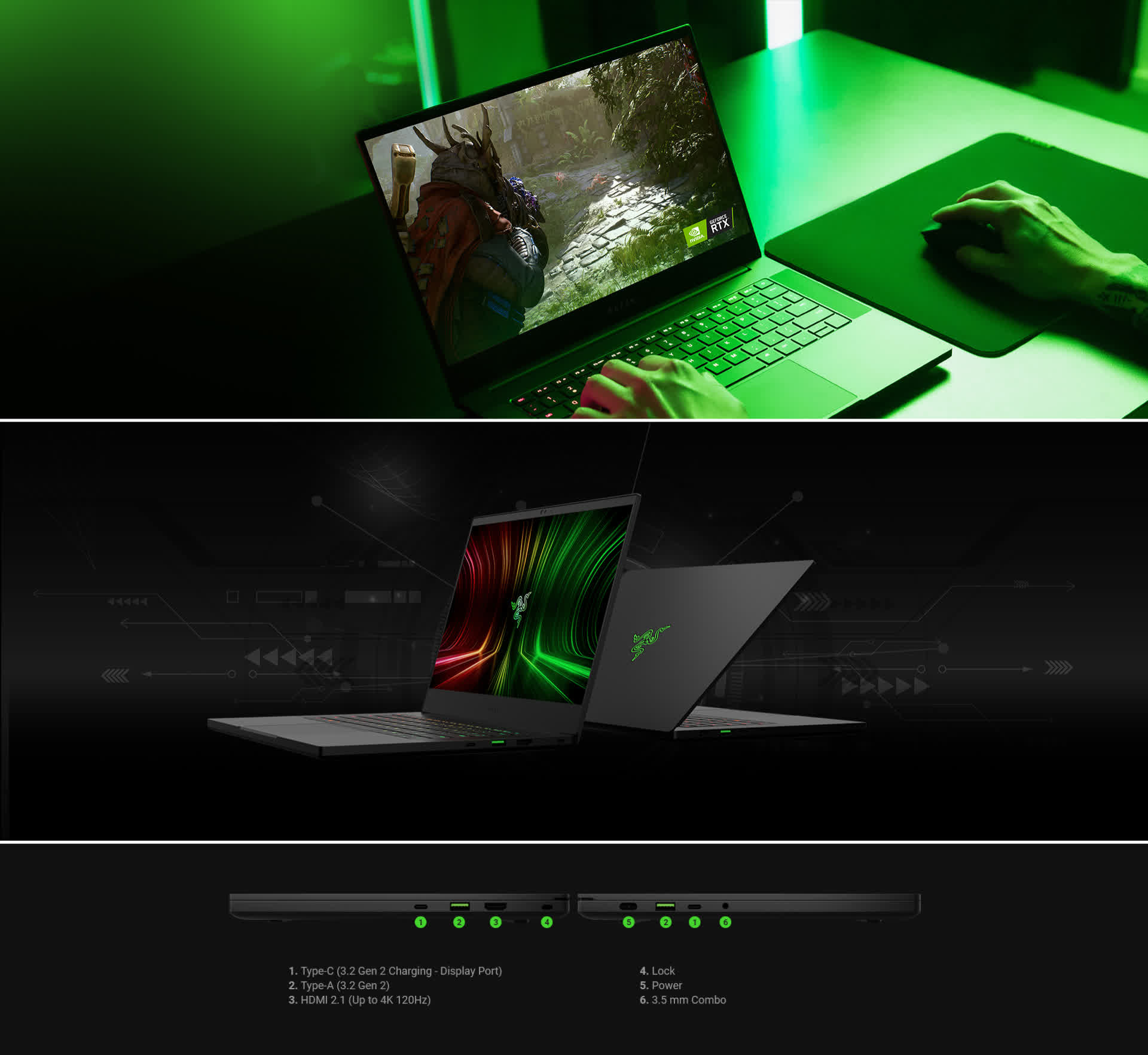See our latest update to this buying guide: The Best Gaming Laptops
Gaming laptops have never been as powerful, thin and lightweight as they are today. Packing the best GPUs and CPUs combined with high refresh rates and high-resolution displays, good keyboards, tons of storage, and all the memory you could need, many of these modern mobile PCs can rival their desktop counterparts in many instances. If you're looking to make a purchase, here are our best picks.
This updated buying guide sees several favorites returning with updated hardware from Nvidia, Intel, and AMD. There are also a few new entries, including Razer's first-ever Ryzen laptop.
Best Gaming Laptop Overall
Asus ROG Zephyrus G15 - 2021

To choose a gaming laptop that often means making compromises: huge power at the cost of a heavy chassis; great specs let down by a poor battery life; a monstrous gaming machine with a price to match. With the Asus ROG Zephyrus G15, however, the good parts come without the bad.
The G15 can be specced with the top two mobile GPUs available right now, the RTX 3070 and RTX 3080, which get the most out of the 15.6" 1440p Pantone-validated screen (3ms, 300 nits) and 165Hz refresh rate. There's also a Ryzen 9 5900HS processor, 16GB of DDR4-3200 RAM, and 1TB of storage that can be upgraded up to 48GB and 2TB SSD.
Measuring 20.32mm thick and weighing 4.19lbs, the Zephyrus G15 is thinner and lighter than many similar gaming laptops. One unique feature is the ErgoLift 180-degree hinge that raises the keyboard slightly off a surface when the lid is open, helping it stay cool (and look cool). There are also top-firing dual speakers alongside the keyboard and a dot-matrix design on the lid with a prismatic film for a shimmering effect.
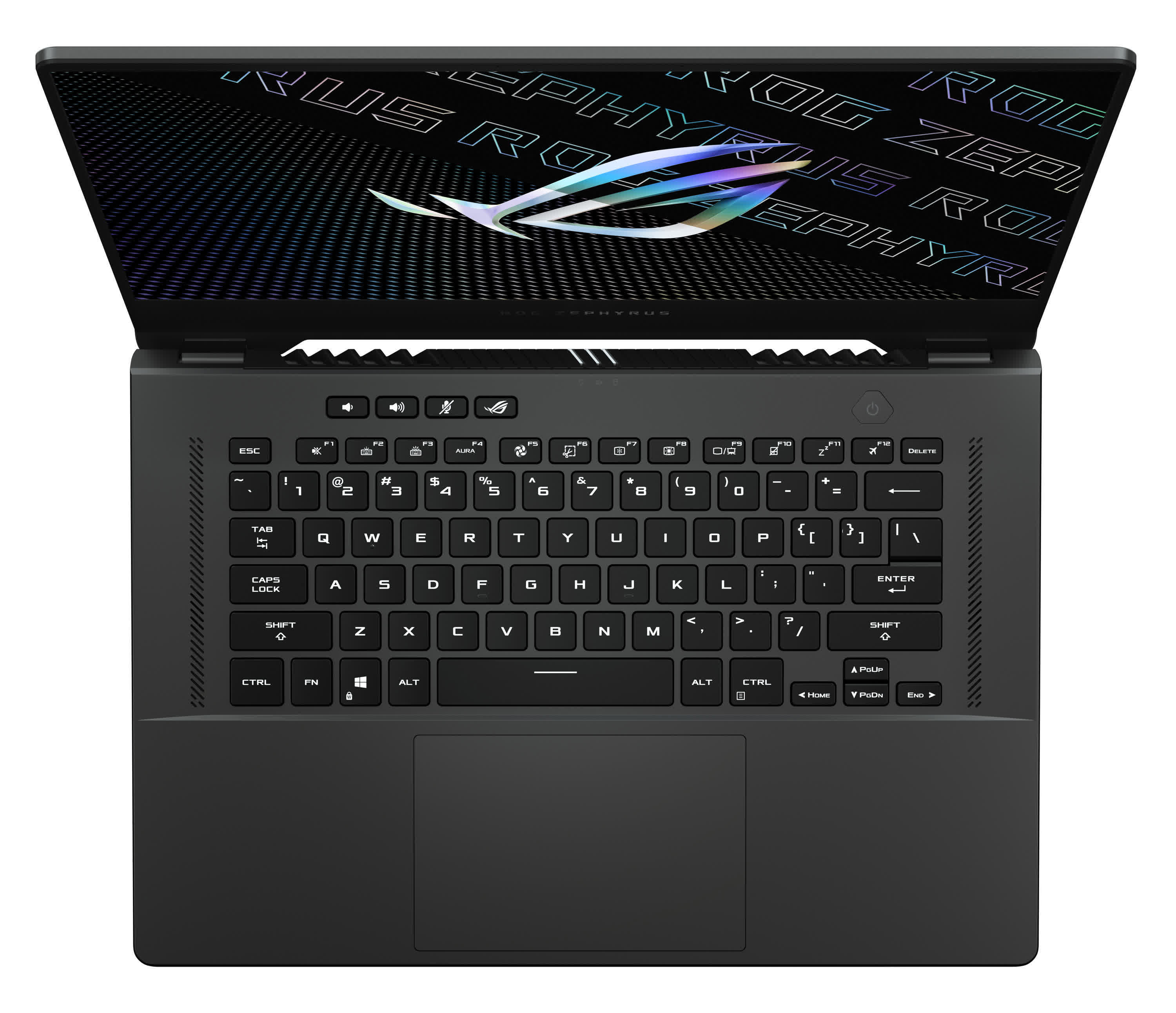
Elsewhere, the G15 boasts Wi-Fi 6 with Gig+, FreeSync, 100% DCI-P3 color coverage, and an excellent keyboard and trackpad. The 90Wh battery can last 8+ hours when not gaming, and you can charge it to 50% in 30 minutes using the 200-watt charger.
Port-wise, there are two USB 3.1 Gen 2 Type-C and two USB 3.1 Gen 2 Type-A inputs, microSD, an audio jack, an Ethernet RJ45 port, a Kensington-style lock port, and HDMI 2.0b, which ticks most boxes.
The Zephyrus G15 base model normally starts at $1,499, but the state of the current market means you may struggle to find one at that price---though it's still cheaper than most competitors. The only real drawbacks are the lack of a webcam and the fact that it can get pretty toasty under heavy loads.
If you want something bigger and have cash to spare, there's the Razer Blade Pro 17, which maxes out at an RTX 3080 and comes with similar screen options.
A more expensive alternative
Razer Blade 15 Advanced
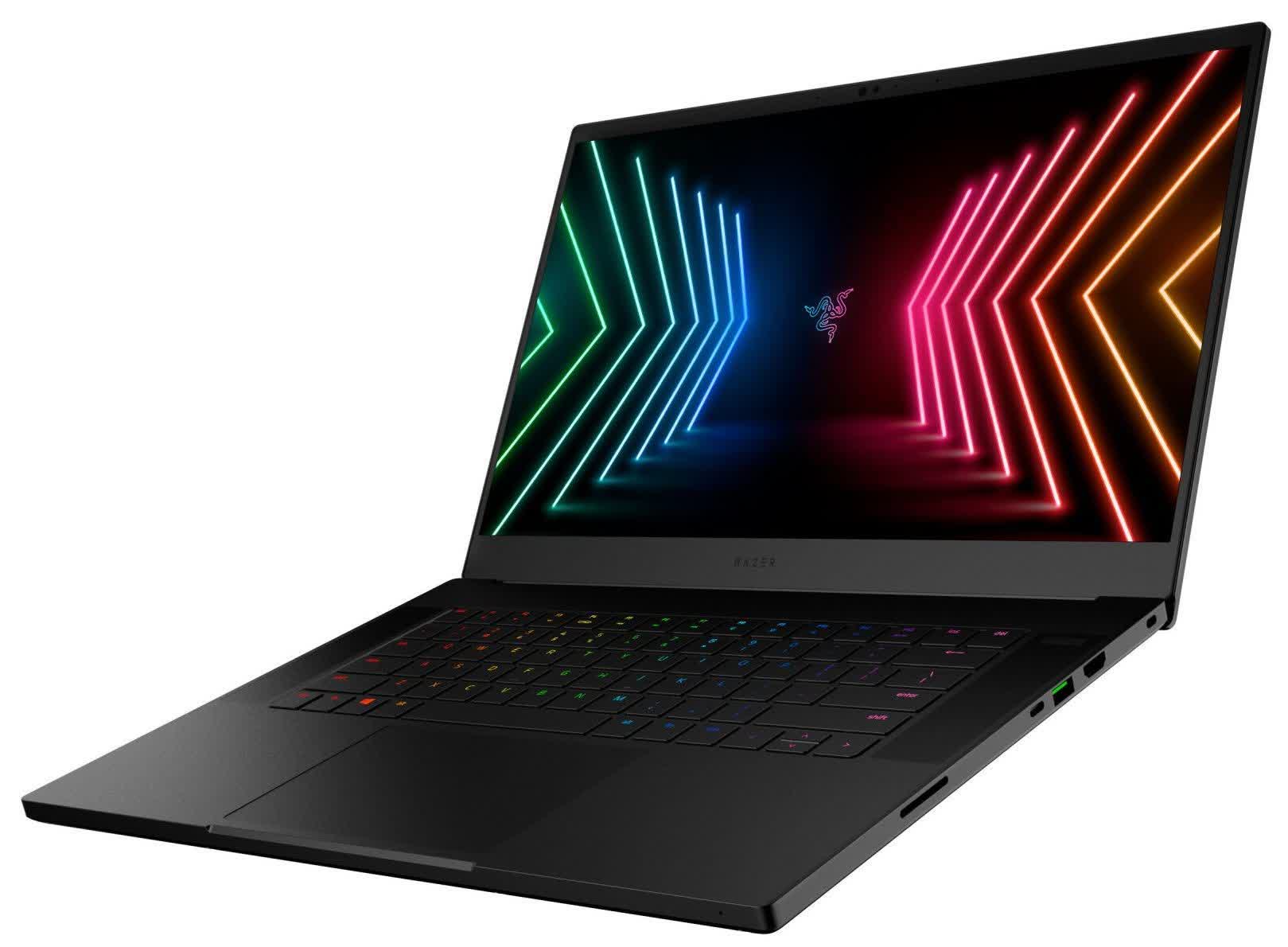
You can always rely on Razer's Blade laptops for high-quality builds, lightweight designs, and top specs, and the latest iteration of the Blade 15 Advanced Edition is no different.
At 15.8mm, Razer says the Blade 15 Advanced is the world's thinnest 15-inch laptop with RTX graphics, though models with specs higher than the RTX 3060 are slightly thicker. You can max out this device with a Core i9-11900H (2.5GHz base clock, 4.9GHz boost clock) and an RTX 3080 GPU, enough to push the pixels around its variety of screen options: 360Hz@FHD, 240Hz@QHD, and a 60Hz@4K OLED touchscreen.
As per usual, the Blade's sleek, black brushed-metal chassis looks and feels gorgeous, despite being a fingerprint magnet. There is a slew of ports, including two USB Type-C with Thunderbolt support, a 1TB NVMe M.2 SSD that supports PCIe 4.0, and up to 32GB of RAM (all models have upgradeable storage and RAM). And don't forget the top-firing speakers, vapor chamber cooling, a UHS-III SD card reader, and a Windows Hello-compatible IR webcam.
The Blade 15 can't match the battery life of the Zephyrus, but it's still decent for a gaming laptop. Razer's offering is a lot more expensive; the starting model has a $2,299 MSRP, and the high-end option hits $3,399.
Ryzen + Gaming on 14"
Asus ROG Zephyrus G14 - 2021

The ROG Zephyrus G14 was pretty great on its first iteration, and now packs the latest hardware from Nvidia and AMD. The laptop offers the perfect combination of weight (~3.5 pounds), performance, price, display, footprint, and battery life if you want something that can be carried around like a regular laptop, just with gaming-capable hardware.
The Zephyrus' magnesium alloy case oozes style, and while the keys are restricted to a white backlight, you can opt for the AniMe Matrix lighting feature. These 1,215 individual LEDs are placed under the lid, allowing buyers to customize the laptop with their own designs and animations. It also shows notifications, and this latest model adds a virtual pet that reacts to system usage and battery life.
Sitting inside Asus' machine is the Ryzen 9 5900HS, AMD's 8-core/16-thread chip that can boost up to 4.6GHz. It's paired with an RTX 3060, a 1TB M.2 NVMe SSD, and 16GB RAM (8GB soldered + 8GB removable). The display is a 14-inch 1440p IPS screen that can hit 120 Hz, supports FreeSync (there's also a 144Hz FHD upgrade) and covers 100% of the sRGB color gamut.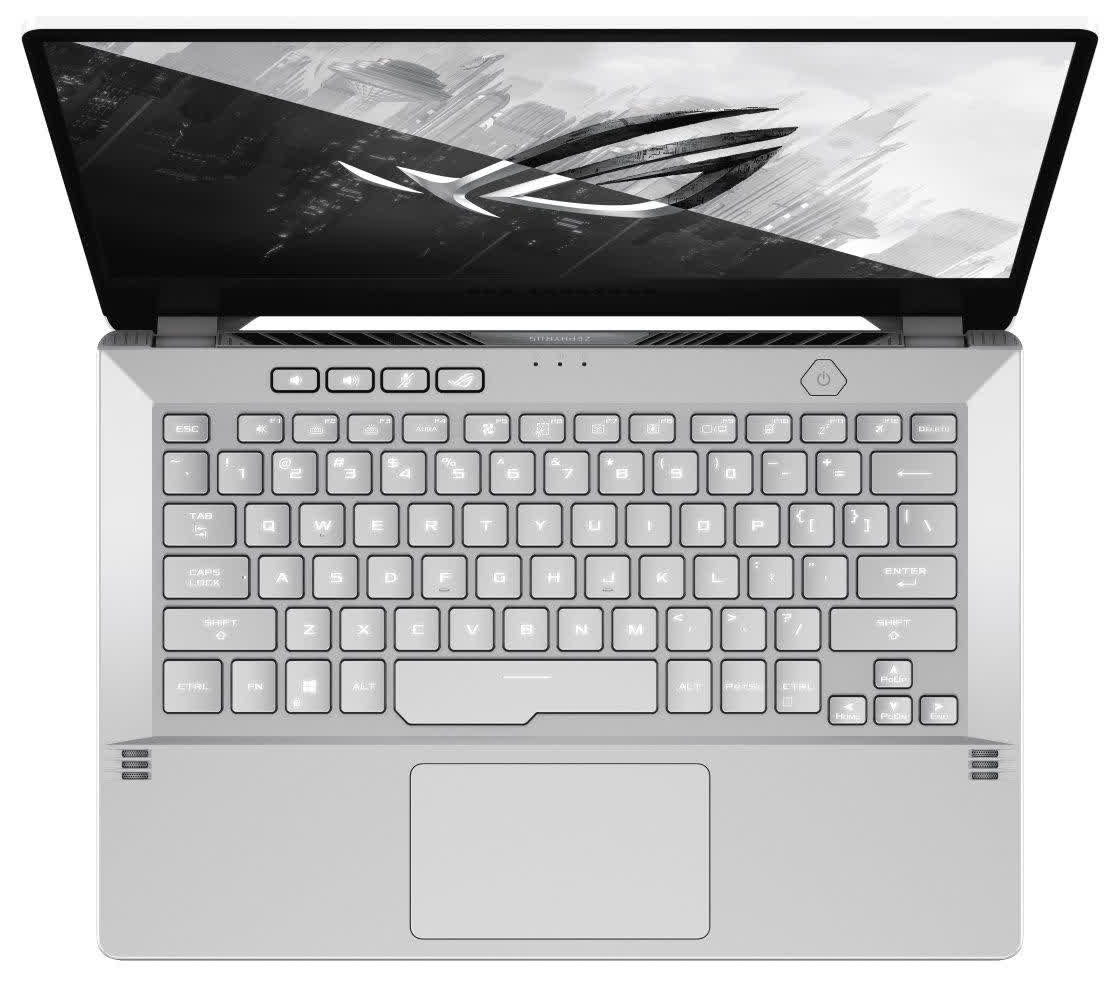
Connectivity consists of two USB-C (one supports DisplayPort), two USB-A, a full-sized HDMI 2.0, a 3.5mm audio jack, Wi-Fi 6, and Bluetooth 5. It's also the first ROG laptop to feature fingerprint login on the power button. Being AMD, there's no Thunderbolt 3, and lacks a webcam.
Battery life, often one of the worst elements of gaming laptops, is great, lasting around 12.5 hours in a looping video test. It may be missing a couple of features, but at $1,749.99 (1TB model), it's competitively priced in the current market for a balanced, lightweight gaming machine with almost no flaws if this is your kind of gaming system.
Razer's first Ryzen is pretty good, too
Razer Blade 14 - 2021
If you want a bit more power for that 14-inch screen, you might want to consider the new Razer Blade 14. It arrives with the overclockable 8C/16T Ryzen 9 5900HX paired with GPUs ranging from the RTX 3060 up to the RTX 3080 with 8GB of VRAM and a 100W TGP.
The three available models offer as options a 1080p/144Hz (base) or 1440p/165Hz screen, and all come with FreeSync Premium, 16GB of RAM, a 1TB PCIe SSD, and a 61.6 Whr battery rated for 12 hours.
Razer claims this is the highest performing 14" gaming laptop you can buy, and the thinnest, too, measuring just 16.8mm. Those flagship components are kept cool using vapor chamber cooling, with extra consideration placed on surfaces that are touched often, such as the WSAD keys to avoid uncomfortable heat. The Blade 14 is packed with ports: two USB Type-C 3.2 Gen 2 ports, HDMI 2.1, a single USB 3.2 Gen 2 Type-A port, and a 3.5mm combo jack.
Throw in a Windows Hello-capable 720p webcam, Wi-Fi 6E (802.11ax), Bluetooth 5.2, an anti-ghosting keyboard with per-key Chroma lighting, all packed into a CNC aluminum chassis with an anodized finish, and the Blade 14 looks like an alluring option for gamers after a 14-inch laptop.
There's the same lack of Thunderbolt, battery life could be better, the RAM isn't upgradeable, and it can get warm. The RTX 3060 Blade 14 starts at $1,799, the RTX 3070/QHD version costs $2,199, and the top-of-the-line RTX 3080 version is $2,799. All come with the Ryzen 9 5900HX.
Gaming on a Budget
Dell G15 5510

Finding a good gaming laptop for ~$1,000 is no easy task these days, but if you do want mobile Ampere for less than a grand, there's Dell's G15 5510, a $999 machine with an RTX 3050 Ti. The base model of this Alienware-engineered machine features a Core i5-10200H (4 core/8 threads), 8GB of RAM, and a 512GB M.2 SSD. You also get a 15.6 FHD IPS screen (250 nits) with a 120Hz refresh rate, which is a great combination for the price.
That RTX 3050 Ti will get you above 60fps in most games at 1080p, though the 4GB VRAM can be an issue in some titles. You could always spend an extra $169 and upgrade to an RTX 3060 6GB / Core i7-10870H combo to better utilize the 120Hz display, but if you're on a budget, the base model will get you places.

The Dell G15 is a bit bulky and heavy at 5.4 lbs, but it is solidly built. The laptop comes with an optional 4-zone RGB backlit keyboard, Wi-Fi 6, Bluetooth 5.1, and a 56Whr battery (68Whr battery with RTX 3060). Port selection is pretty good for a laptop at this price point: two USB 2.0, one USB 3.2 USB Type-C with Thunderbolt 4.0, HDMI 2.1, a headphone jack, and RJ45. Battery life offered is ~6.5 hours of heavy internet use at max brightness. It does miss adaptive-sync tech, and the speakers aren't great, but the G15 5510 does deliver pretty great value.
Swapping RTX Ampere for RTX Turing
MSI GF65 Thin
Right now we'd definitely recommend going for a budget laptop that packs an RTX GPU to access DLSS 2.0. And while it doesn't have the power of Ampere, the MSI GF65 Thin 9SEXR-838 boasts the RTX 2060, which outperforms the RTX 3050 Ti in most games, alongside an Intel i5-9300H and a 15.6-inch 144Hz screen for around $1,000.
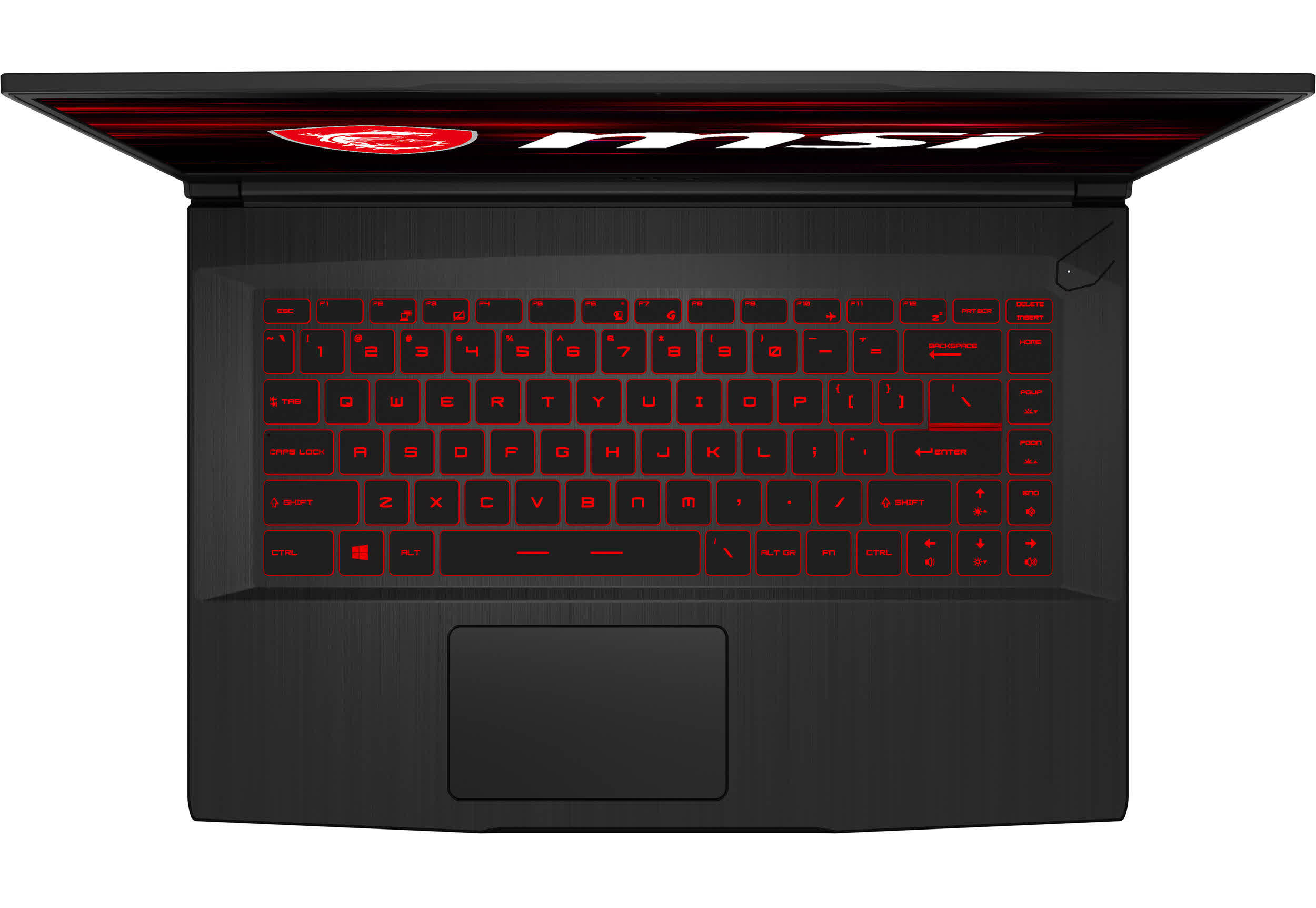
This MSI GF65 Thin also comes with a 512GB NVMe SSD, 8GB of RAM, two USB 3.2 Gen 1 Type-C ports, two USB 3.2 Gen 1, and a HDMI input.
There are some compromises at this price, including the use of single-channel memory (it can be upgraded to dual-channel for $40), plastic body, and loud fans, but it's worthy of consideration at the current price.
